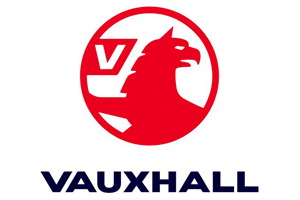


This edition of the Vauxhall-Opel Calibra 2.0 Turbo is the 6 speed / Manual version and was first brought out in 1992. This was at around the same time as the introduction of the 1993 Jaguar XJ 220 S 3.5 V6 Turbo and the 1992 Bugatti EB110 SuperSport.This particular Vauxhall-Opel Calibra has a 1998cc Turbo Petrol powerplant with 4 cylinders in a St formation.
The Calibra shares its Petrol St4 engine configuration with the likes of the 2019 Ariel Atom 4 2.0 Turbo and the 2013 Caterham 7 620 R 2.0 L Supercharged. If you're looking for other fast cars which share the Calibra's All Wheel Drive, Coupe combination then how about the or the .
Weighing in at 1405 kgs (3097 lbs) this makes the Vauxhall-Opel Calibra 2.0 Turbo in the same weight category as the 2022 Lotus Emira First Edition 3.5 V6 Supercharged Auto or the give or take 50kg.
In terms of power the 1998cc 16V St4 engine produces 201 bhp (149 kW) @ 5600 rpm similar to the 2020 Audi TT S Turbo 50 TFSI (225 bhp) or the 2020 Audi A1 Sportback 40 TFSI S tronic S line (197 bhp).
The Turbo St4 throws out 207 lb-ft (280.6 Nm) @ 2400 rpm placing it with cars of similar torque performance figures such as the 2020 Abarth 695 70th Anniversario 1.4 Turbo (184 lb-ft) or the 2020 Audi A1 A1 Sportback 35 TFSI S tronic S line (184 lb-ft).
If one combines the weight with power or torque performance for the Vauxhall-Opel Calibra you can get a better idea of it's real world performance.
![Volkswagen-VW Arteon 2.0T AWD - [2022] image Volkswagen-VW Arteon 2.0T AWD - [2022] image](/editionimages/2314.jpg)
The 2022 Volkswagen-VW Arteon 2.0T AWD (168.0 bhp per ton) has similar Bhp Per Ton stats as the Vauxhall-Opel Calibra.
The Vauxhall-Opel Calibra has a Power to weight ratio of 143.0 bhp per ton and 147.3 lb-ft per ton. Bhp Per Ton figures of the 1992 Calibra competing with the 2022 Volkswagen-VW Arteon 2.0T AWD (168.0 bhp per ton) or the 1981 Mitsubishi Lancer 2000 Turbo 2nd Gen (168.0 bhp per ton).
If you agree with the late great Carroll Shelby then arguably an even better indicator of potential performance, Torque. Use weight as well and you end up with - Torque per ton, with the Vauxhall-Opel Calibra generating around 147.3 lb-ft per ton. If you're curious as to what other cars have as much torque to weight then look no further than the 1991 Audi V8 4.2 V8 Quattro (172.3 lb-ft per ton) or the 1951 Ferrari 212 Export (172.2 lb-ft per ton).
With a 0-60mph time of 6.20 secs or a 0-100km/h (0-62mph) of 6.4 secs, this made the Vauxhall-Opel Calibra 2.0 Turbo as fast as the 2019 Toyota Supra SZ-R 2.0 Turbo (6.20 secs) the 2019 Toyota Supra SZ 2.0 Turbo (6.20 secs) the 2017 Volkswagen-VW Arteon 2.0 TDi SCR 4Motion (6.20 secs) the or the 2014 Peugeot 208 Gti 1.6 Turbo 30th (6.20 secs). This Vauxhall-Opel Calibra 2.0 Turbo is also faster than the 2024 Mazda CX-90 S 3.3 Turbo (6.30 secs) the 2020 Audi A1 Sportback 40 TFSI S tronic S line (6.30 secs) the 2018 Ford Fiesta ST 1.5 Turbo 5 door (6.30 secs) the and the 2018 Ford Fiesta ST 1.5 Turbo (6.30 secs).
When talking about the performance of the Vauxhall-Opel Calibra on the drag strip it can reach a quarter mile in an estimated 15.07 secs @ 90.8 mph. Similar performance down the quarter mile can be found with the the 2006 Nissan 350Z Roadster 300bhp (15.00 secs), the 1998 Nissan 300ZX Version S Twin Turbo (15.00 secs), and the 1990 Toyota Supra 2.5 Twin Turbo (15.00 secs).
Modern performance cars are often artificially restricted to 155mph. The 1992 version of the Vauxhall-Opel Calibra 2.0 Turbo has a maximum speed of 152mph.
If maxing out your car on the AutoBahn is your thing and you're wondering what's faster than the 1992 Vauxhall-Opel Calibra 2.0 Turbo then how about the 2020 Ford Mustang Bullitt 5.0 V8 (163 mph), the 2019 Renault Megane RS 1.8 Turbo 300 Trophy-R (163 mph), or the 1996 Lotus Esprit 2.0 Turbo GT3 (163 mph).










Jaguar X Type 3.0 V6 Sport
Engine: Naturally Aspirated Petrol | 2968cc 24v V6
Top Speed: 146 mph
0-60mph: 6.60 seconds

Seat Leon SC 2.0 TDI FR
Engine: Turbo Petrol | 1968cc 16v St4
Top Speed: 228.5 kph
0-100kph: 7.5 seconds



















